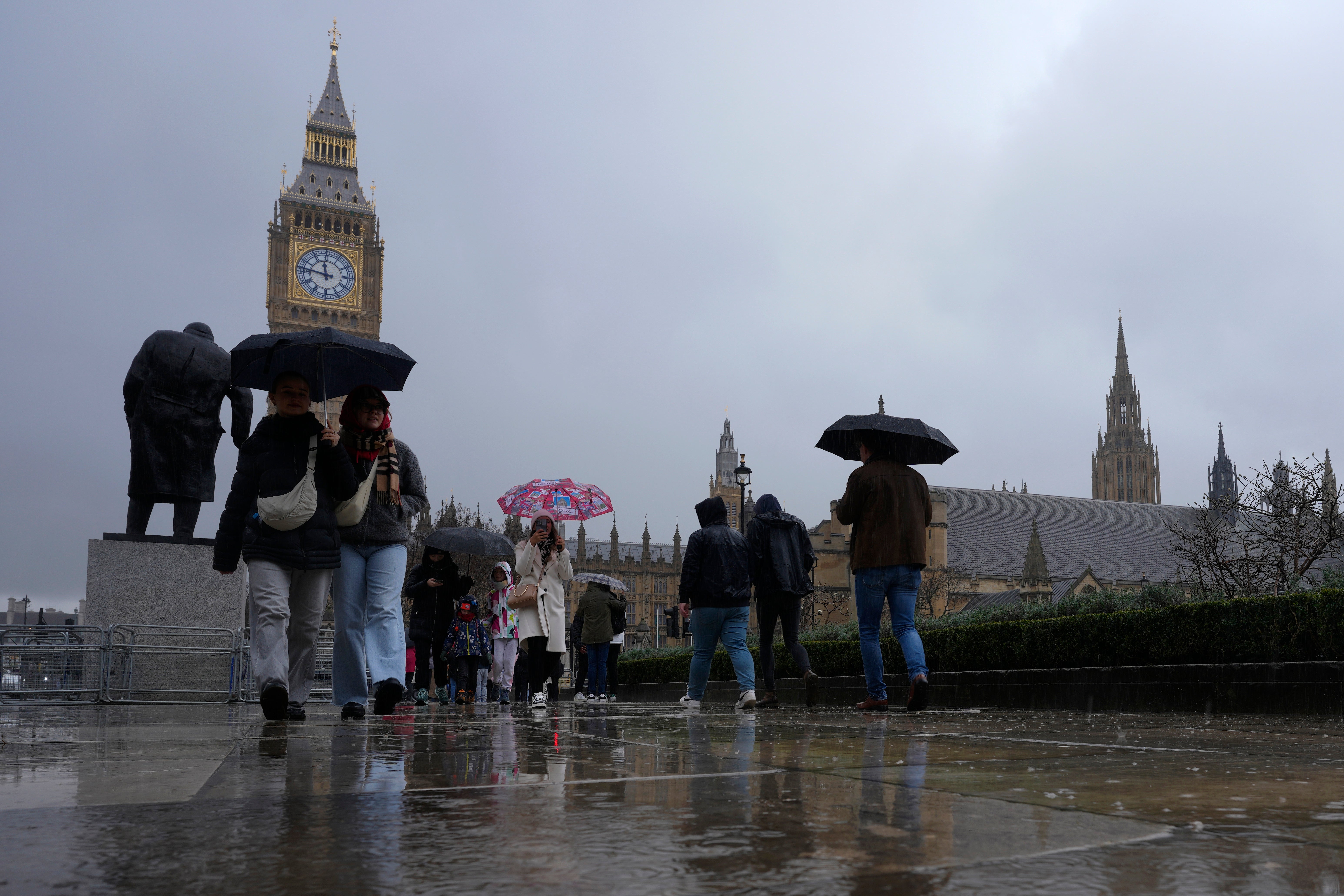The UK is stepping up lawmakers' security as tensions flare over the Israel-Hamas war
The British government is stepping up security for lawmakers after politicians reported threats and intimidation connected to the Israel-Hamas war

Your support helps us to tell the story
From reproductive rights to climate change to Big Tech, The Independent is on the ground when the story is developing. Whether it's investigating the financials of Elon Musk's pro-Trump PAC or producing our latest documentary, 'The A Word', which shines a light on the American women fighting for reproductive rights, we know how important it is to parse out the facts from the messaging.
At such a critical moment in US history, we need reporters on the ground. Your donation allows us to keep sending journalists to speak to both sides of the story.
The Independent is trusted by Americans across the entire political spectrum. And unlike many other quality news outlets, we choose not to lock Americans out of our reporting and analysis with paywalls. We believe quality journalism should be available to everyone, paid for by those who can afford it.
Your support makes all the difference.The British government said Wednesday that it is stepping up security for lawmakers after politicians reported threats and intimidation connected to the Israel-Hamas war.
The Home Office said a 31 million-pound ($40 million) fund will give every lawmaker a “dedicated named police contact” and provide money for those facing threats to pay for private security protection.
The government said some of the money will go more broadly to protecting Britain’s “democratic processes from intimidation, disruption or subversion” ahead of a general election later this year. The fund includes money for extra police patrols in areas where tensions are high.
Divisions over the conflict in Gaza have convulsed British politics, with some lawmakers saying they fear for their safety after receiving threats over their positions on the war. Reports of both antisemitic and anti-Muslim abuse in Britain have soared since Hamas’ Oct. 7 attack on Israel, which triggered Israel’s invasion of Gaza.
A debate last week in the House of Commons on whether to call for a cease-fire descended into chaos amid allegations the speaker of the house had bent parliamentary rules in response to pressure from pro-Palestinian activists.
Conservative lawmaker Mike Freer has announced he is stepping down because of abuse and death threats linked to his support for Israel. Freer said an arson attack on his office in December was the “final straw.”
He said the money announced Wednesday was only “dealing with the symptom” rather than “going to the root cause” of why people feel emboldened to attack politicians.
“Security is welcome,” Freer told Times Radio. “But frankly, unless you get to the root cause, then you’re just going to have a ring of steel around MPs. And our whole style of democracy changes.”
British lawmakers have a tradition of meeting regularly with constituents in their local communities, but security has been tightened after several attacks in the last decade. In 2016, Labour lawmaker Jo Cox was killed by a far-right extremist, and Conservative David Amess was murdered in 2021 by an attacker inspired by the Islamic State group.
In 2017 an Islamic State-inspired extremist killed four people with a vehicle on Westminster Bridge before stabbing a police officer to death at the gates of Parliament. The following year a neo-Nazi pleaded guilty to plotting to kill a Labour lawmaker.
Anti-war activists claimed the government was trying to stifle protest and lumping peaceful demonstrators in with violent extremists.
Home Secretary James Cleverly called on pro-Palestinian demonstrators to halt the mass protests that have drawn hundreds of thousands of people to central London almost weekly to call for a cease-fire in a conflict that has killed close to 30,000 Palestinians, according to Gaza’s Hamas-run authorities. Israel says Hamas killed 1,200 Israelis, mostly civilians, and abducted roughly 250, in the Oct. 7 attack.
The protests have been overwhelmingly peaceful, though there have dozens of arrests over signs and chants allegedly supporting Hamas, a banned organization in Britain. Jewish organizations and many lawmakers say the mass marches have created an intimidating atmosphere for Jewish Londoners.
“I genuinely don’t know what these regular protests are seeking to achieve,” Cleverly told the Times of London. “They have made their position clear, we recognize that there are many people in the U.K. that hold that position. We respect that, but the U.K. government’s position is a disagreement with that for very practical, well thought-out reasons.”
The government says it supports an immediate “humanitarian pause” in the fighting but says a permanent cease-fire can only happen if Hamas frees all Israeli hostages and relinquishes control of Gaza.
Ben Jamal, director of the Palestine Solidarity Campaign, which has organized many protests, said Cleverly’s comments showed the government did not understand the role of protest “as an important part of the democratic process.”
“They regard it as a hindrance, something that should be suppressed,” Jamal said.